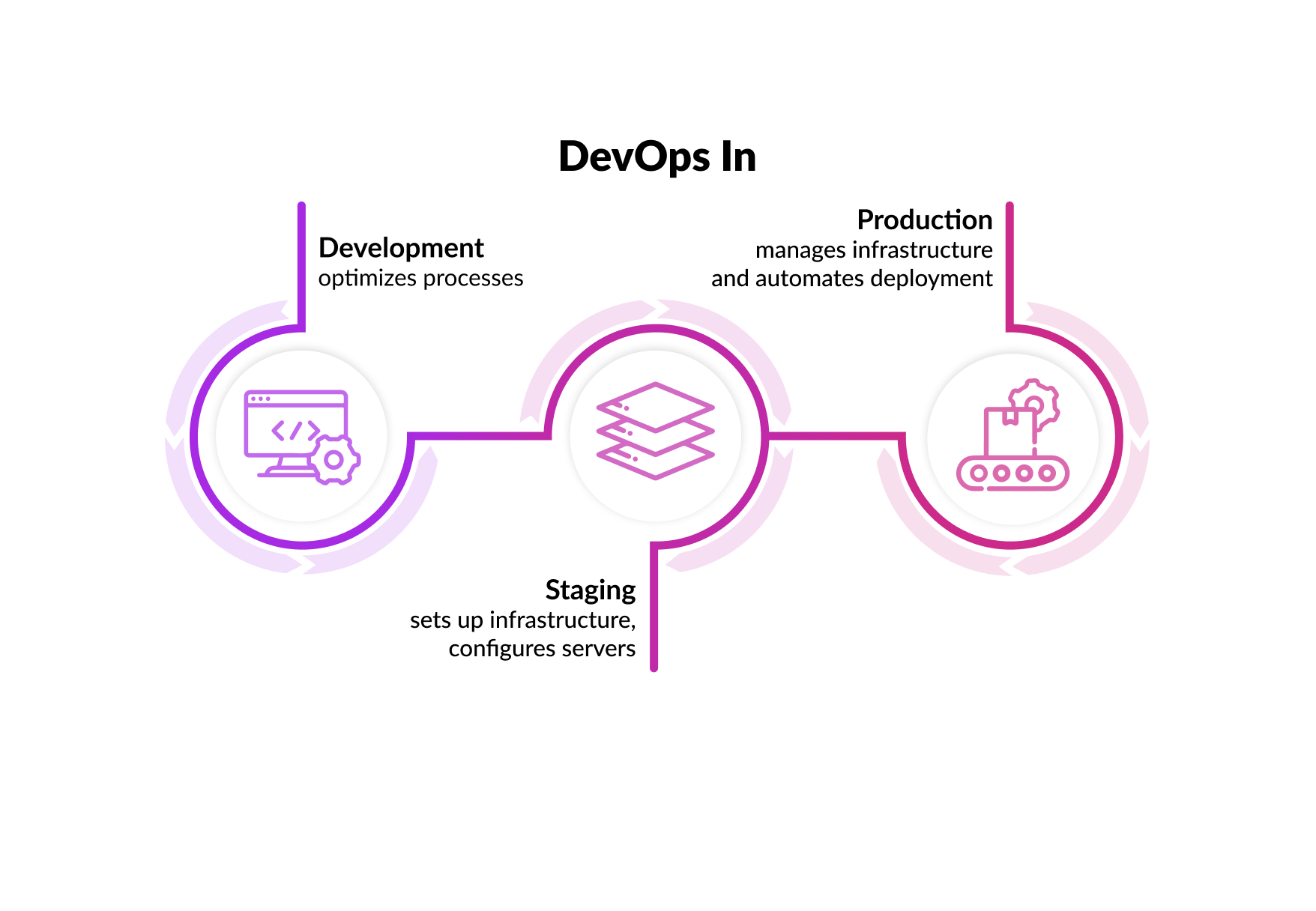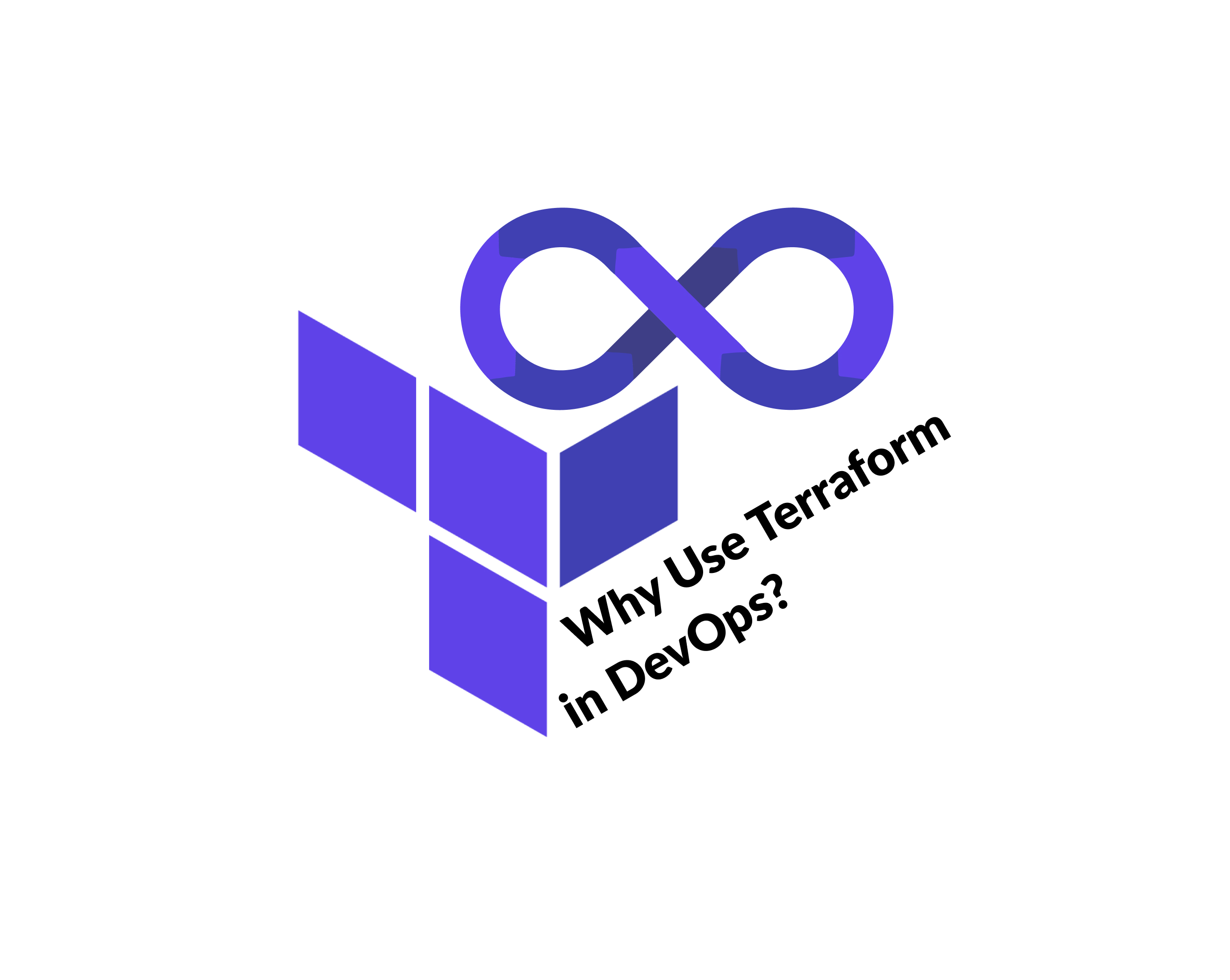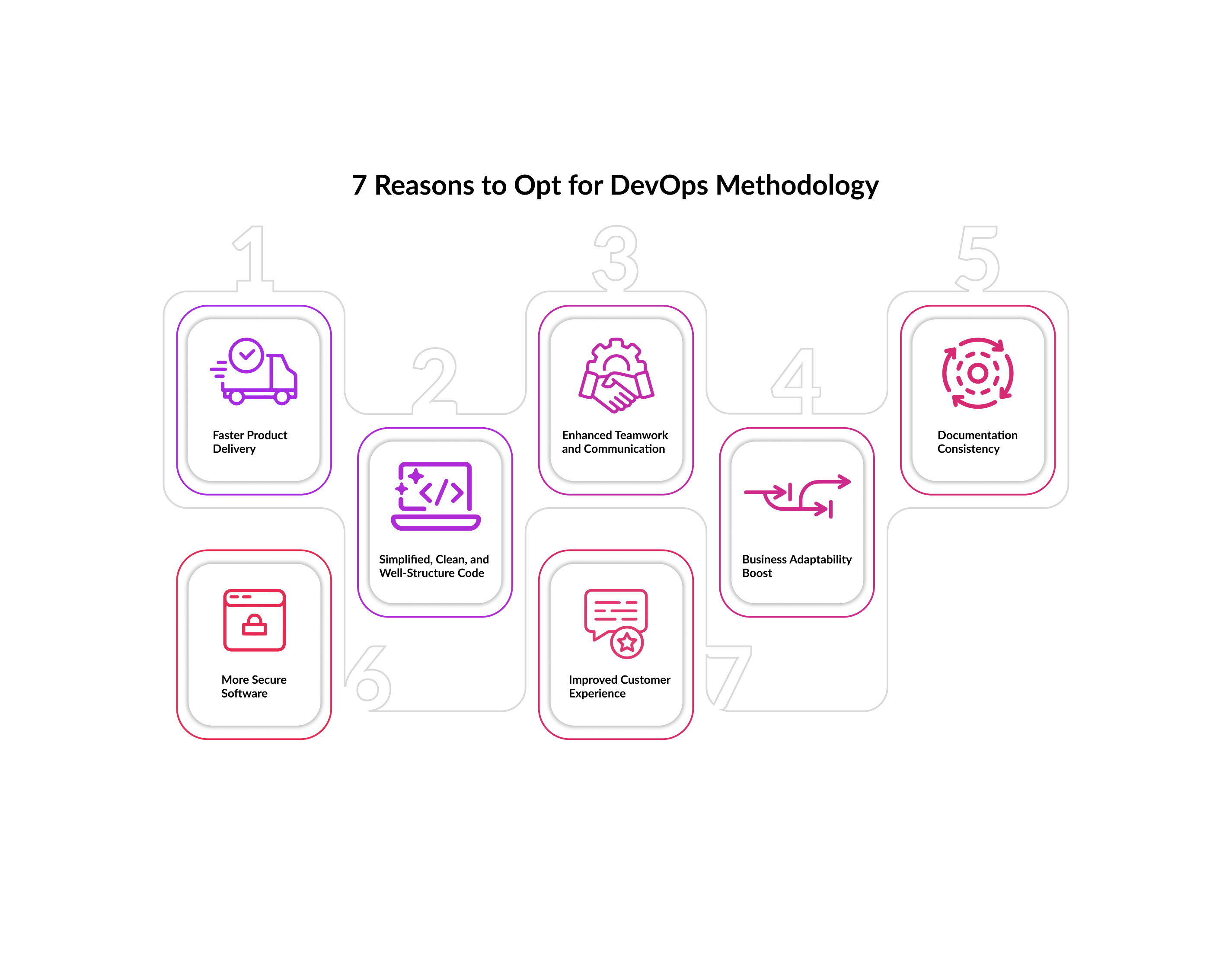DevOps has undoubtedly gained popularity and become more widespread in recent years, and this growth is easily explainable. Because the advantages of DevOps prevail, businesses are rushing to adopt it.
DevOps is definitely not a flash in the pan; it has the strength to become the norm for developing software. Embracing an agile software development methodology will boost your business’s competitive edge.
Your company can benefit significantly from implementing DevOps methods through increased productivity, enhanced security, and improved teamwork.
Therefore, Quintagroup is willing to offer our DevOps professionals at your service. Let’s look through the reasons for your company to get DevOps engineers on board.
Why Is DevOps Essential for Your Project?
DevOps is primarily a way of thinking. It involves close cooperation, being on the same page, and achieving the shared goal of bettering every part of the product and responding as quickly as possible to changing circumstances and growing needs.
Any project that calls for frequent updates must employ the DevOps approach, which is becoming a generally accepted practice. Otherwise, you have to catch up to your competition regarding time to market.
DevOps benefits for businesses include removing obstacles and accelerating the launch date, saving you money on projects. Also, as DevOps prioritizes the customer’s needs, you will receive insightful input to boost your company’s profits.
Implementing automated processes inside the CI/CD cycle is crucial to the success of the DevOps methodology. This method raises team productivity overall and lessens errors brought on by human factors.
The Role of DevOps in Development, Staging, and Production
Imagine you want to build a house. DevOps is like the supervisor who oversees every step, from planning to the final construction.
Neat-and-clean development, staging, and production environments are a modern necessity for a well-facilitated development process. Making it clear for both development and operational teams is the purpose of DevOps methodology.
Development
In the development stage, DevOps optimizes processes like code compilation, test execution, and continuous integration to simplify coding and testing for programmers. This way, developers can quickly iterate on their code, identify and fix issues, and ensure software quality.
While software developers are busy with coding, DevOps engineers establish a set of requirements for code to be moved to the next stage, bearing in mind security policies.
Staging
In staging, DevOps creates a secure environment to be extensively tested before the software goes live to guarantee it works well.
This includes:
- setting up infrastructure
- configuring servers
- automating deployment processes
DevOps also helps track and evaluate the system’s performance in staging to ensure it complies with the correct specifications and operates as planned.
Production
In production, smooth software deployment and performance monitoring lie on DevOps engineers’ shoulders. DevOps manages infrastructure, configures servers, and automates deployment. They will quickly resolve any arising issues, minimizing downtime and disruptions for end-users. This way, the software is highly available and functioning correctly.
All in all, DevOps engineers are responsible for developers’ and operational teams’ convenient and non-disruptive cooperation. In this context, they set environments, ensure smooth code flow between them, and facilitate the development process in general.
IaaC in DevOps – Terraform

Writing code to specify how we want servers, networks, and other infrastructure to be configured is known as infrastructure as code (IaaC). At Quintagroup, we use Terraform to help us do this. IaaC with Terraform facilitates DevOps engineers’ work in a few ways:
- It implies describing infrastructure resources in human-readable configuration files that follow a specific format, such as virtual machines, networks, and storage. These configuration files define the desired state of the infrastructure. This way, Terraform reduces the possibility of setup problems and ensures consistency across many environments.
- It makes collaboration simpler. Any team member may view and change the code we produce by storing it in a version control system like Git.
- We can easily recreate our infrastructure anytime because it is documented in code. This speeds up the recovery process.
Choose Quintagroup and get the best DevOps services.
7 Reasons to Choose DevOps Methodology for Your Business
1. Faster Product Delivery
Software development approaches today require teams to produce high-quality software continuously and reduce time-to-market. By leveraging automation, DevOps can do this. The Development and Operations teams can quickly develop and integrate code with an automated CI and CD pipeline.
DevOps mainly facilitates ongoing release and deployment with better productivity and quality. The key to Continuous Delivery is automation. Another example of continuous delivery is pushing frequent system upgrades.
With the DevOps methodology, the apps are deployed more rapidly thanks to shared development and operations activities. This is significant because businesses’ success depends on their capacity to keep up with the times and their worker’s mutual understanding.
2. Infrastructure Simplicity
A DevOps method also significantly clarifies the code infrastructure, another significant benefit.
People write the code. Although several people are involved, occasionally, they make mistakes, and occasionally, the elements they build need to fit together nicely.
How does DevOps save the day? It makes code harmonization possible because it simplifies, cleanses, and structures the code. It also resolves any new problems arising from the old code.
Moreover, openness made it much easier to integrate new members into the group. It is easier to participate when everything is crystal clear, which allows the team to scale.
3. Improved Work Atmosphere
The DevOps model enhances teamwork and communication between the development and operations teams. This improves communication and cooperation between the two groups. Also, it results in improved decision-making, eventually raising the software product and service quality.
Every highly productive team has a deeply ingrained culture of openness and trust fueled by two-way communication. This tight cooperation fosters a respectful culture, resulting in a friendly working environment.
Using the DevOps philosophy will also ensure your teams can collaborate to solve problems and provide a user-friendly product with contemporary communication and collaboration technologies.
4. More Business Adaptability
The strength of individual skills, knowledge, and automation in DevOps promotes innovation. Each of these factors influences how well the final product turns out.
Also, quick software delivery lets your company make the necessary adjustments with enough time to fulfill the initial release deadline. Consequently, your engineers will have the opportunity to test essential features and product structure.
Most significantly, keeping an open feedback loop shortens the response time, letting QA engineers assess and address worries about software bugs and other potential scenarios.
The DevOps technique helps boost business adaptability. Businesses must be flexible and quick to respond in today’s rapidly evolving business climate. Therefore, it allows companies to swiftly and effectively offer software products and services.
5. Code Synchronization and Documentation Consistency
Some companies overlook the need to create clear project documentation, but at Quintagroup, we strongly emphasize it. Still, your primary technical specification frequently changes, particularly for more extensive and complicated projects.
Despite your best efforts, things will change once the product is built, and the technical documentation should be updated to reflect these changes. As a result, there ought to be synchronizing of the documentation and code.
How can experts in DevOps be of assistance? There is less reliance on the documentation because of the code’s clear and well-organized structure. You can understand everything from the code itself. This makes technical documentation a confirmation of what has already been done.
6. Higher Quality and More Secure Software
The DevOps process ensures that software products are extensively tested before being deployed. As a result, the quality of software products and services improves. The development and operations teams collaborate to ensure the software’s stability and dependability.
A method for designing infrastructure called DevSecOps (development, security, and operations) incorporates security into every stage of the IT lifecycle. By minor adjustments, automated compliance procedures, and precise controls, DevSecOps minimizes recovery time.
DevSecOps is not an isolated entity but is integrated into the whole development process. This method lowers costs and decreases time by identifying possible problems at the beginning of the development process.
To safeguard your company’s intellectual property, you should employ the DevSecOps methodology throughout the delivery pipeline.
7. Enhanced Customer Experience
The DevOps approach depends on customer, partner, and internal staff feedback. While developing a product, companies may use this open feedback loop to get a handle on user attitude.
The methodology guarantees that software solutions are produced more quickly and with higher quality. This enhances customer experience, as consumers demand high-quality software products and services delivered swiftly. Moreover, the end product should appeal to your target users by sticking to the time-to-market schedule and answering their concerns. The DevOps technique achieves this objective.
Wrapping Up
DevOps offers business benefits such as more straightforward and quicker development cycles, teamwork and interaction, better adaptability and scaling, and continuous feedback and growth.
This methodology is an essential component of any successful company strategy. It contributes to the faster and higher-quality delivery of software products and services. DevOps is the answer if your organization wants to prosper in today’s fast-paced and volatile commercial environment.
You need a flexible, affordable, and trustworthy outsourcing partner who can boost your process and efficiency and generate business value if you want to profit from DevOps in your organization. Scale your organization, choose where to put your resources to work, and accelerate business growth with the support of Quintagroup’s team of knowledgeable DevOps specialists and cutting-edge consulting services. Contact us to discover more.
